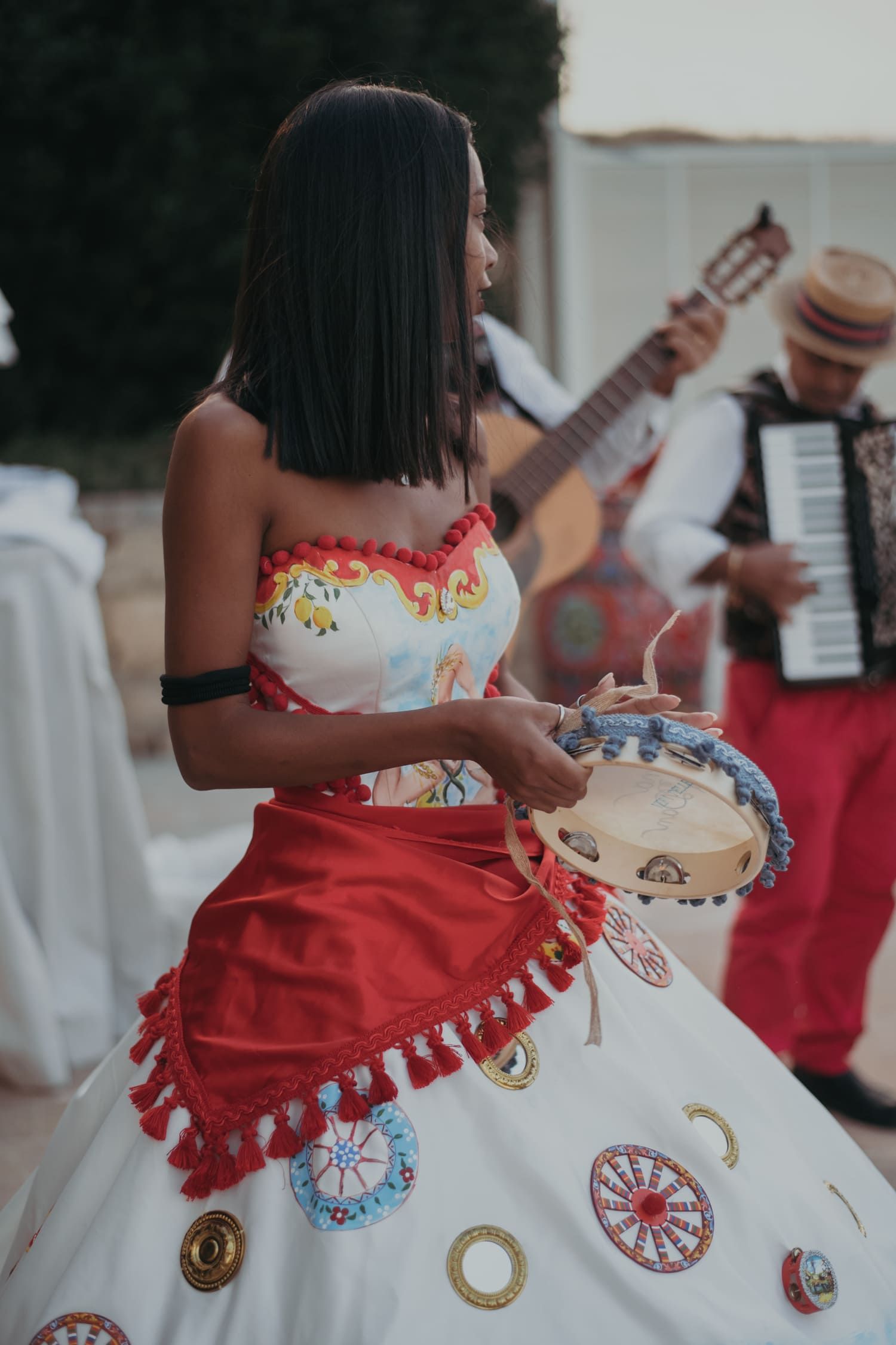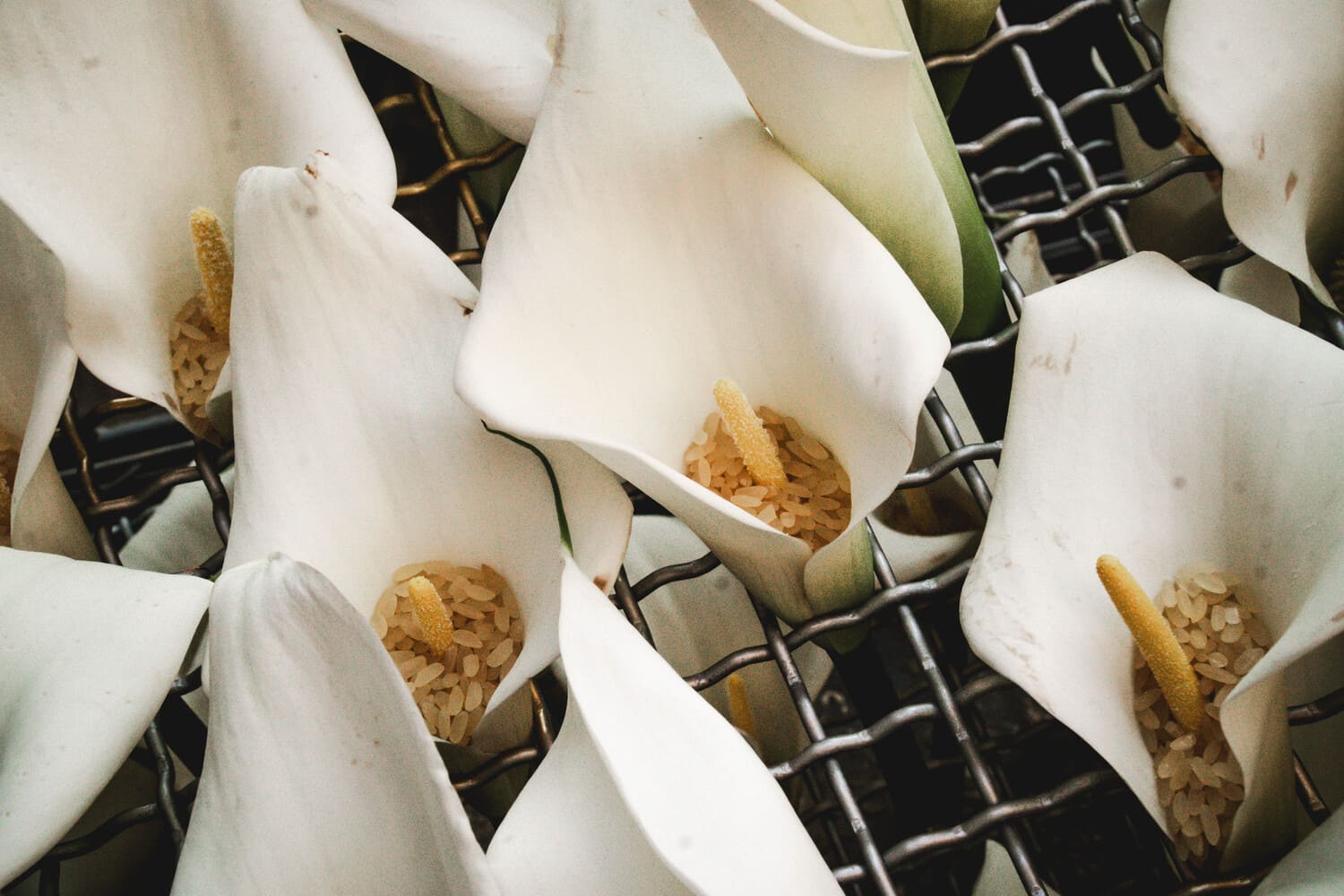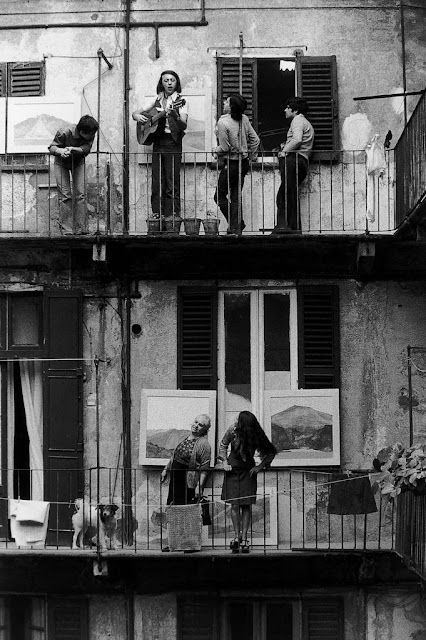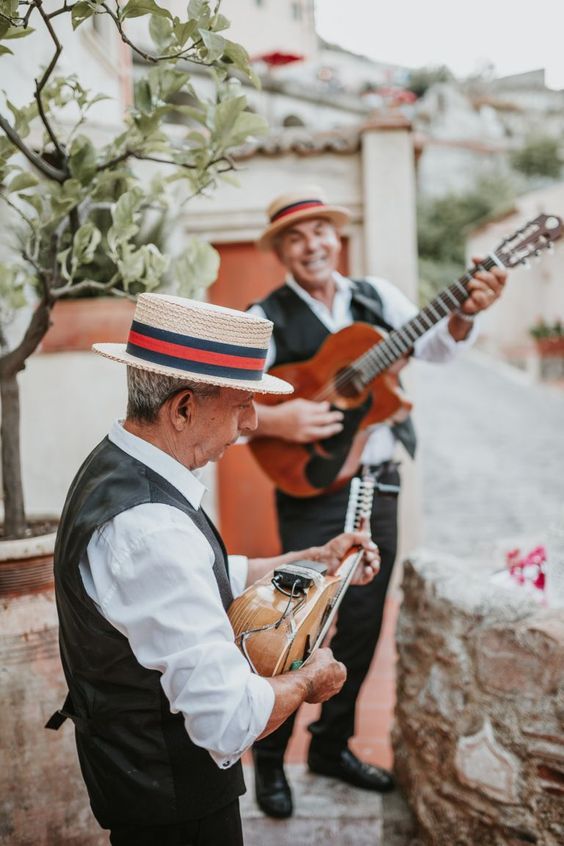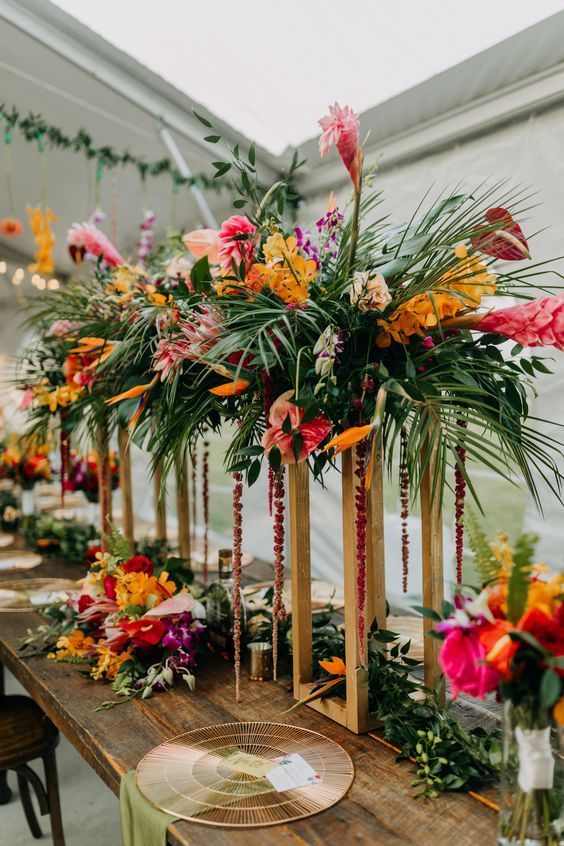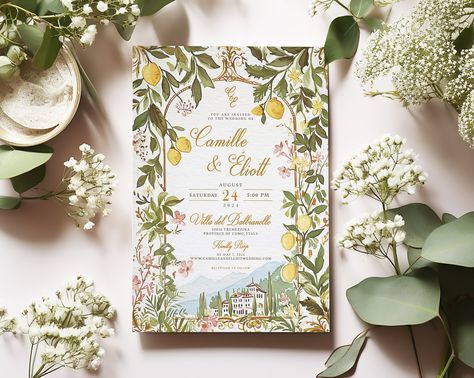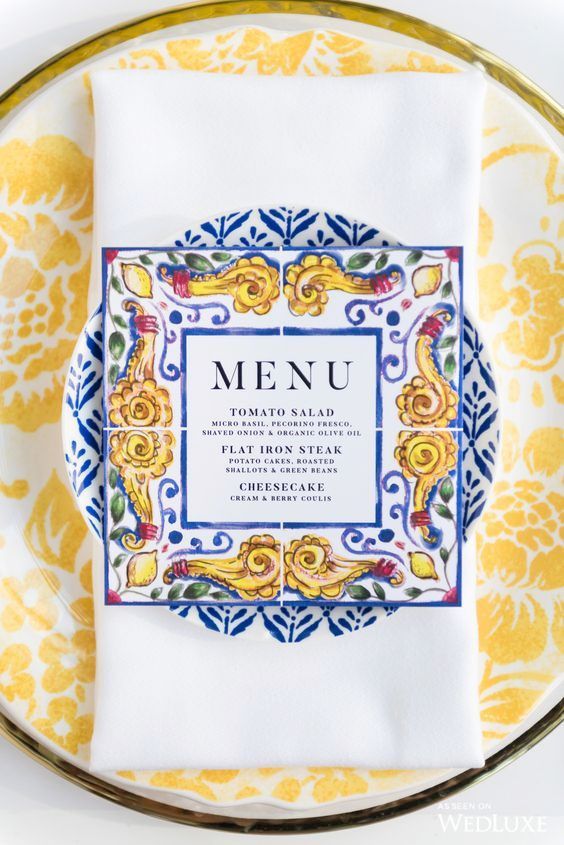5 Weird Sicilian Wedding Traditions you've never heard about (Must Read)
5 Weird Sicilian Wedding Tradition - a history of fun, love and defiance
Have you ever found yourself curious about Sicilian Wedding Traditions?
Sicily, rich in its cultural tapestry, boasts a plethora of wedding customs.
Some are steeped in deep symbolism, some in societal defiance, while others lean more towards the fun side.
Yet, they all share one common thread: each tradition is an opportunity for celebration, laughter, a shared drink, and a communal meal.
Brace yourself for an enthralling ride filled with confetti battles, heartfelt serenades, bold elopements, and the kind of family drama that could easily rival the intensity of a reality TV show.
1. Serenade
Sicilian serenades are an ancient tradition dating back as far as the Middle Ages. Originally, they were a way for a man to express his love for a woman by singing songs beneath her window.
Over the centuries, the tradition of serenades has evolved and taken on a broader meaning. In Sicily, the serenade has become an important event marking the beginning of a marriage.
The Serenade as a Promise of Love:
The serenade takes place the evening before the wedding. The groom, along with his closest friends and family, tiptoe through the quiet streets.
But they're not sneaking around to steal a peek.
As they gather beneath her window, the
guitars strum, the voices blend, and love songs float up to the bride's room, serenading her with a symphony of love and anticipation.
Imagine her surprise as she opens her window to find this incredible gift! It's a moment filled with warmth, joy, and happy tears.
But the serenade is just the beginning. In true Sicilian style, the celebration kicks into high gear!
Tables overflowing with delicious food and drinks appear like magic. The band keeps the music flowing, and everyone joins in, dancing under the stars and celebrating the love that's bringing these two families together.
A serenade it is not just a private moment for the couple, but also a community event. Neighbours come out of their homes to listen to the music and participate in the festivities.
The serenade is a way for the community to show their affection and support for the couple. It is also a way to celebrate love and family.
Sicilian serenades are a piece of history and culture that continues to live on. They are a way to transmit the values of love, family, and community.
Serenade's Post-War history:
After the war, Sicily was a poor region and people needed to find hope and joy in life again. The serenade, with its music and festive atmosphere, was a way to do that.
Furthermore, the serenade began to become a true occasion for families to come together. The groom, through his serenade, demonstrated his commitment to the bride and her family in front of everyone.
This new connotation of the serenade has contributed to making it an even more popular and deeply rooted tradition in Sicilian culture.
2. Rice, wheat or... flowers?
In the whirlwind of a Sicilian wedding, amidst the laughter and tears, there's a moment where the air shimmers with blessings.
A long-standing custom in weddings is the ritualistic rice toss, which greets the newlyweds as they step into their new life together.
However, did you know that in Sicily, it was wheat grains, not rice, that were traditionally thrown at newlyweds? Wheat has long been revered as the godfather of grains in Sicily, symbolizing the wealth that forms the foundation of this sun-kissed region.
This practice has deep roots, tracing back to Roman times when wheat was scattered over the bride and groom, symbolizing wishes for abundance and fertility. Over time, rice became the grain of choice, primarily due to its affordability and common presence in Roman households.
The type of rice used in this celebratory toss is often believed to carry specific blessings:
- Carnaroli rice, known for its elegance, signifies unity and togetherness;
- Basmati, with its exotic aroma, represents the couple’s fertility and vibrant passion;
- Arborio, rich and hearty, is tossed for everlasting love;
- Coarse-grained Roma rice symbolizes financial stability and family growth;
- Whole grain rice stands for love in its most natural and unadorned form.
In Mazara del Vallo, a quaint corner of Sicily, wheat still holds a special place in this tradition. Here, tossing wheat at weddings is seen as a nod to the ancient practice, with its connotations of economic prosperity and fertility still very much alive.
This tradition, a blend of historical practices and local customs, adds a unique flavor to the celebration, connecting the past with the present.
3. La Fuitina: Sicily's Dark Tale of Love and Defiance
"La Fuitina," a captivating Sicilian tradition, takes us back to a time when marriages were arranged, often void of romantic sentiment.
Families brokered these unions for social or economic gain, sometimes employing a "paraninfu" or "u sinsali" (matchmaker) who, for a fee, orchestrated these advantageous matches.
In this backdrop of calculated matchmaking, many young women, yearning for a life beyond fieldwork and parental control, found themselves at odds with their predestined paths.
Often, they did not wish to marry the suitor chosen for them but instead longed for someone they "loved." Here, "loved" warrants quotation marks, as expressions of love in such a conservative society were minimal, usually reduced to a "taliata" – fleeting glances exchanged during mass or on Sundays in the town square. Open conversations, let alone declarations of love, were out of the question.
Driven by their hearts, young couples often embarked on a daring adventure. Without ever having spoken openly, the man would leave a secret letter for the woman, proposing a rendezvous. They would then escape their hometown to start a life together elsewhere, defying parental expectations. If they managed to remain undiscovered for at least three days, or long enough to pacify their families, they were then considered legitimate to marry and solidify their bond.
This practice of "la fuitina" is more than just an escape; it's a powerful testament to love's triumph over societal constraints and familial obligations. It's a narrative woven into the cultural tapestry of Sicily, highlighting the complex interplay of love, tradition, and rebellion.
4. "A Cunzata du lettu" - A Sicilian Wedding Bed Tradition
In Sicily, there's a delightful custom surrounding the preparation of the wedding bed, known as "cunzata du lettu." A few days before the wedding (or on the wedding day), unmarried friends or relatives of the couple, are tasked with arranging the couple's bed.
This is not just any bed-making; it is done with special care and often includes playful or romantic elements.
Meanwhile, the elder women of the family, typically the mother, grandmother, mother-in-law, or aunts, oversee and direct the process. It’s a moment filled with laughter, instructions, and sometimes a bit of teasing.
The tradition involves playfully hiding noisy objects within the wedding bed's sheets, ranging from pasta to plastic dishes. This was initially done so that if the couple consummated their marriage, the family would be aware, as in Sicily, this was seen as a symbol of prosperity and a good omen. However, as families no longer typically live together, the modern twist on this tradition is more about playfully ensuring that the couple faces a bit of a challenge when trying to get into bed, especially after possibly enjoying a few drinks at their wedding.
However, it's not all about humor; there's a touch of romance too, with the inclusion of items like flower petals, candles, love decorations and it's all about making their room the best love nest. The finishing touch is the scattering of sugared almonds (confetti) over the bed, often adorned with the initials of the bride and groom. Once the bed is perfectly set, the bedroom is locked, and neither of the spouses is allowed to see it until the wedding day.
After the bed is prepared, it's customary to offer refreshments to the guests who helped with the setup. This tradition is not just about preparing a bed; it's a celebration of love, community, and the joyous spirit of a Sicilian wedding.
5. the Bouquet's Secret Story in Sicilian Weddings
When a bride walks down the aisle, her radiant smile and flowing gown steal the show. But nestled in her arms lies a silent storyteller - the bouquet. Beyond its fragrant beauty, this floral arrangement whispers tales of ancient traditions and heartfelt rituals, especially in Sicilian weddings.
Unlike the roses and lilies often gracing modern bouquets, the first blooms carried by Sicilian brides were kissed by the sun - orange flowers. This fragrant choice wasn't merely aesthetic. Drawing inspiration from an ancient Arab custom, the orange blossom symbolised a wish for a bride blessed with a bountiful brood.
But a Sicilian bouquet isn't just a passive ornament. It dances through the wedding day. This delicate dance starts with a loving gesture - the bride's parents present her with the bouquet, a symbol of their blessings and pride. It then transforms into a token of gratitude as the bride gifts it to the groom's mother, acknowledging her new family with every fragrant petal.
Just as the bride is about to step into the ceremony, the groom surprises her with one final gift - a new bouquet, a fresh promise of love and devotion as they embark on their shared journey. This exchange isn't just about flowers; it's a silent conversation between hearts, whispering love and anticipation.
Now, the bouquet reaches its grand finale - the toss! This seemingly playful tradition holds the echo of an ancient belief. In times gone by, the bouquet wasn't just tossed but carefully passed through three hands - from groom to bride and then to an unmarried maiden. This ensured the fertility blessing followed the bride and reached another hopeful soul.
Over time, this intimate exchange blossomed into the joyful toss we know today, showering a group of eager friends with wishes for love and new beginnings.
And you, how do you imagine your Wedding in Sicily?
If you have any questions, you can have a free wedding consultation to explore the possibility of getting married in Sicily. It's a no-committment, no-salesy conversation, where you can share your idea and I'll share with you a plan on how to make it happen.
Leave your details below and we will be in touch to organise the call!


